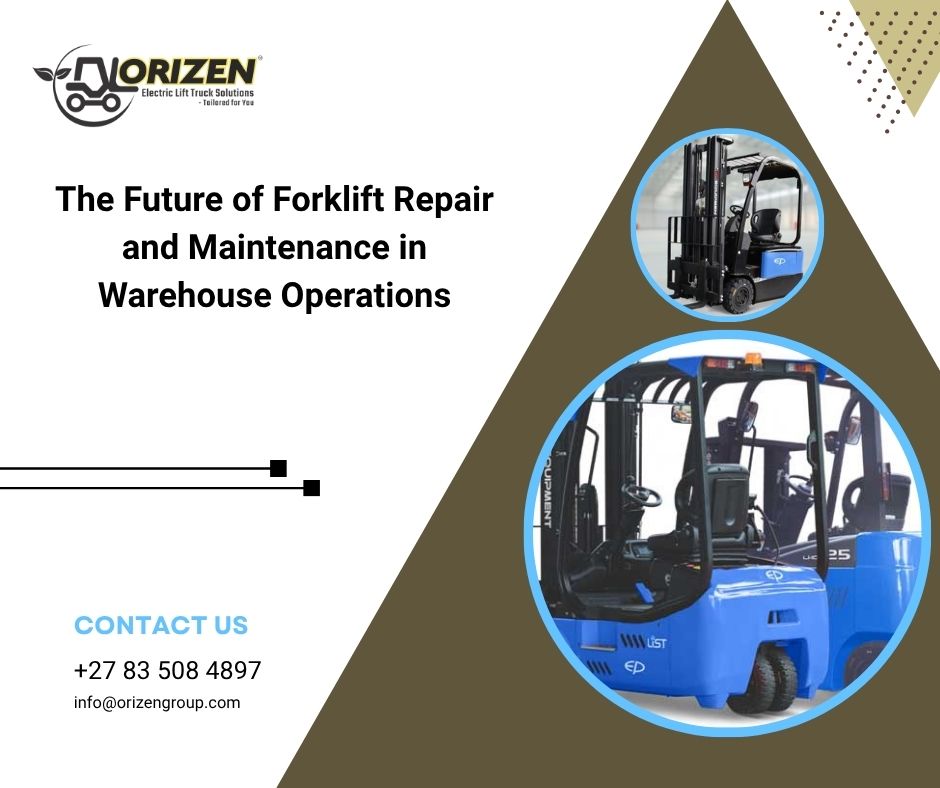The warehouse industry in South Africa is changing fast as businesses in cities like Durban, Pretoria, and Gauteng continue to modernize their operations. Forklifts remain one of the most important tools in warehouse management, handling everything from heavy lifting to precise loading. However, the real backbone of this efficiency lies in keeping these machines in top condition. The future of forklift repair and maintenance is now shifting towards smarter, safer, and more cost-effective methods that improve productivity and reduce downtime.
Evolving Trends in Forklift Repair and Maintenance
In South Africa, companies are realizing that forklift maintenance is no longer just a routine task—it’s a strategic investment. Traditional reactive repairs, where machines are fixed only after a breakdown, are slowly being replaced by preventative and predictive maintenance approaches. Preventative maintenance schedules allow technicians to detect wear and tear before it causes serious damage. Predictive maintenance, on the other hand, uses smart technology and data analytics to forecast when a forklift will need servicing. This approach helps businesses in industrial regions like Gauteng avoid unexpected failures that can disrupt warehouse operations.
Many warehouse operators are also turning to professional forklift repair and maintenance service providers who specialize in advanced diagnostics and quick turnaround repairs. These services are becoming more accessible and affordable, making it easier for small and large companies alike to extend the lifespan of their forklifts while maintaining safety and efficiency.
Technology Driving Forklift Repairs and Maintenance Services
Modern technology is transforming the way forklift repairs and maintenance are carried out. Telematics, sensors, and digital monitoring systems are becoming standard tools in fleet management. These technologies allow operators to track performance, battery health, fuel usage, and even driver behavior in real time. When data is analyzed correctly, it can predict potential breakdowns and alert technicians before problems become costly.
In cities such as Durban and Pretoria, many warehouses are adopting hybrid and electric forklifts to meet sustainability goals. These modern forklifts require specialized repair and maintenance skills, which has led to new training programs and certifications for technicians. The shift towards electric forklifts also means fewer emissions, quieter operations, and lower energy costs—benefits that align with South Africa’s push towards greener logistics and warehouse operations.
Importance of Skilled Technicians in Forklift Maintenance
Behind every well-maintained forklift is a skilled technician. As the industry evolves, the demand for qualified forklift mechanics in South Africa continues to grow. Skilled technicians not only repair machines but also understand how to optimize their performance for specific warehouse environments. Whether it’s replacing hydraulic components, servicing electric systems, or ensuring that safety standards are met, their expertise ensures reliability and compliance with occupational health and safety regulations.
To support this growing demand, training institutions and Forklift Repairs and Maintenance Service companies in South Africa are offering more practical learning opportunities. By investing in certified technicians, warehouse businesses in regions like Gauteng and KwaZulu-Natal can ensure their fleets are in the hands of professionals who understand both traditional and new-age forklift technologies.
Why Preventative Maintenance Saves Costs and Time
Every minute a forklift is out of service can lead to production delays and financial losses. That’s why preventative maintenance is essential for long-term savings. Instead of waiting for a breakdown, regular inspections, oil changes, and part replacements help prevent small issues from becoming major problems. Businesses that schedule maintenance during off-peak hours also benefit from uninterrupted warehouse operations. In competitive markets such as Durban and Pretoria, where logistics and distribution play a major role in the economy, having a reliable forklift fleet gives businesses an edge. Well-maintained forklifts not only improve performance but also enhance worker safety and extend the overall life of the equipment, reducing the need for costly replacements.
In conclusion, the future of forklift repair and maintenance in warehouse operations across South Africa is focused on technology, prevention, and skill development. As industries in Gauteng, Durban, and Pretoria continue to expand, investing in smarter maintenance strategies will be the key to keeping operations efficient and competitive. By embracing modern tools, training skilled technicians, and prioritizing preventative care, businesses can ensure that their forklifts continue to deliver reliable performance for years to come. Choosing the right maintenance partner can make a lasting difference in productivity and safety. With a commitment to quality service and innovative repair solutions, Orizen Group continues to support South Africa’s warehouse industry with trusted forklift expertise.





Comments